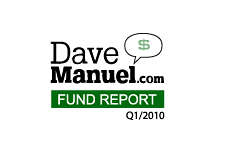Averaging Down or "Doubling Down" Can Be Financial Suicide If You Don't Have a Plan in Place
 If you invest in the stock market, then I am sure that you have faced this situation:
If you invest in the stock market, then I am sure that you have faced this situation:You love a company. LOVE it. You've done all of your research and read all of the company's financial reports. The company has a great product, great management and you feel that the stock is undervalued. Basically, you have unearthed a company that you feel is a slam dunk over time. You take a big position in the company, sure that it will bring you untold riches over time.
The problem is that the stock doesn't act the way that you thought it would. Instead of rising, the stock slowly descends. You watch as your investment loses 10% of its value. Then 20%. Then 40%. Then 50%. What is going on? This great company is now worth half of what you paid for it. If you thought it was a great deal at $20, then surely it is a slam dunk at $10 and the market is simply wrong?
This is where you need to be very, very careful. Most people will average down, or "double down" at this point. They get overly attached to a stock, and when the share price drops in value, they naturally want to add more at a lower price.
This is fine as long as you are planning on possibly doing this BEFORE you purchase your first position. For instance, you allocate $10,000 towards buying stock XYZ. However, you say to yourself "I will buy $5000 worth of shares now, and another $5000 worth of shares if the stock price drops 20%" This is fine. This is the way that you average down, and there is nothing wrong with this.
The problem comes when a person buys a $10,000 position at say, $20, and then decides to put yet another $10,000 into the stock at $10. The problem with this scenario is that you now have twice the amount of money tied up in this stock that you originally wanted to. Now, you are really married to this stock, and the position has become uncomfortably big. What happens is the stock drops to $7? Will you buy even more? Averaging down in this scenario, when you really weren't planning on averaging down in the first place, can be extremely dangerous. If you are chasing a stock that has fundamental problems that you are choosing to ignore due to your pride, then you are setting yourself up for a massive loss down the road.
Averaging down is one of those things that works until it doesn't, and when it finally doesn't work, you will blow out your account and have to start all over. Consistently averaging down and throwing good money after bad is a great way to destroy your brokerage account. Proper money management is the key to being a successful trader, and averaging down is usually a bad idea.
You need to either:
a) take a smaller position to start and leave some money behind to average down later
b) use stop losses and forget about averaging down in the first place
If a stock is consistently dropping in price, then you need to ask yourself why. Most investors who become "married" to a stock will avoid all of the red flags and continue holding, just because they don't want to admit defeat. Again, that's the surest way to blow up your account over time. Don't do it.
Filed under: Stock Market Education | General Knowledge



